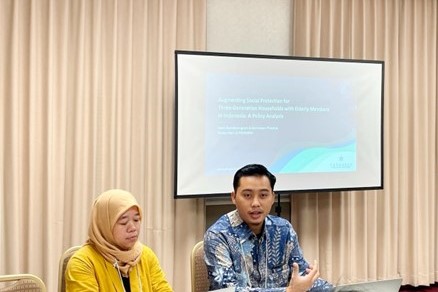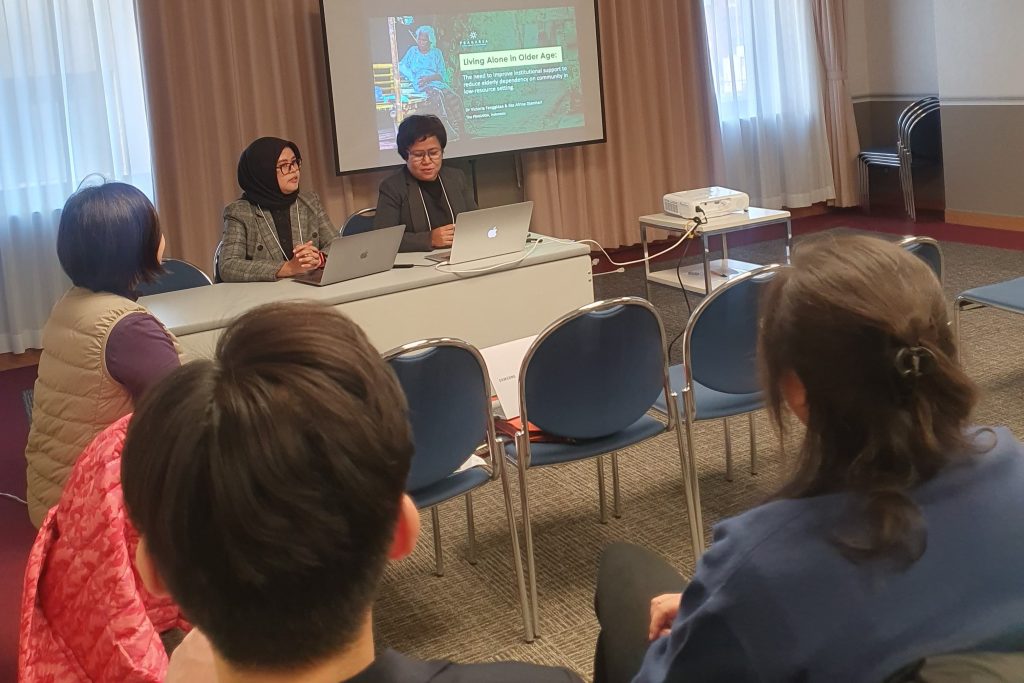
PRAKARSA, January 31, 2022. As the G20 presidency, Indonesia has the privilege to determine the issues to be discussed at the G20 meeting. In the process, the G20 is supported by official engagement groups, one of which is Civil 20 (C20), which is a forum for civil society organizations from around the world to engage with governments in the G20 in dealing with crucial issues in today's world.
The C20 management committee acts as a liaison between civil society and policy makers in the G20, so that people's voices can be conveyed more effectively, including on the issue of Taxation and Sustainable Finance which is accommodated in the Taxation & Sustainable Finance Working Group.
WG Taxation & Sustainable Finance plays a role in advocating through the initiation, proposal, and formulation of the latest issues/policies, especially on sustainable financial taxation.
Prakarsa as the coordinator of WG Taxation & Sustainable Finance, held thematic discussions related to the issue of opportunities and challenges of the digital economy and the potential of digital taxes in Indonesia. In this discussion presented academics in the field of taxation and development economics from the University of Jember namely Aditya Wardhono, Ciplis Gema Qori'ah, and M. Abd. Nasir.
In this discussion it was conveyed that the development of digital technology and telecommunications has succeeded in encouraging rapid transformation in global economic practices without territorial boundaries. Digital potential in Indonesia is growing rapidly, which is marked by the proliferation of start-ups and digital platforms, further strengthening the transformation process towards a digital economy.
This digital transformation will affect innovation, acceleration, efficiency, and productivity of an increasingly diverse society. The contribution of start-ups through unicorns and decacorns to Indonesia's GDP and employment continues to grow. According to a study conducted by the University of Indonesia in 2018, it was stated that Gojek had an economic impact of IDR 44,2 trillion on the national economy, followed by other unicorns such as Tokopedia, Traveloka, OVO, etc. This digitalization provides benefits including trade, namely through digital trade and socio-economic benefits through financial benefits, job creation, buyer benefits, and social equality.
The rapid development of the digital economy must of course be accompanied by developments in the taxation sector. It is necessary to strengthen the issue of tax collection in the digital era for transactions involving trade in intangible goods and services.
Digital taxes in Indonesia have been regulated in the Corporate Income Tax (PPH Badan) in Law no. 2 of 2000 and Value Added Tax through the Minister of Finance No. 48 of 2020, which since July 1, 2020 there has been the imposition of 10% VAT on the use of intangible taxable goods/taxable services from outside the customs area within the customs area for trading through the electronic system.
The potential of a digital tax is expected to provide a sense of justice, create a level playing field and healthy competition and promote economic growth. However, the informant said that there are a number of problems in digital taxes, including the practice of tax avoidance and illicit financial flows through profit shifting practices, online companies do not report who will be investigated if the company's office is not domiciled in Indonesia and how to resolve disputes. gray area In the effort to tax objects and/or digital companies, regarding the imposition of digital taxes and income taxes in Indonesia, they are still involved in international negotiations to face challenges regarding the imposition of such taxes.



